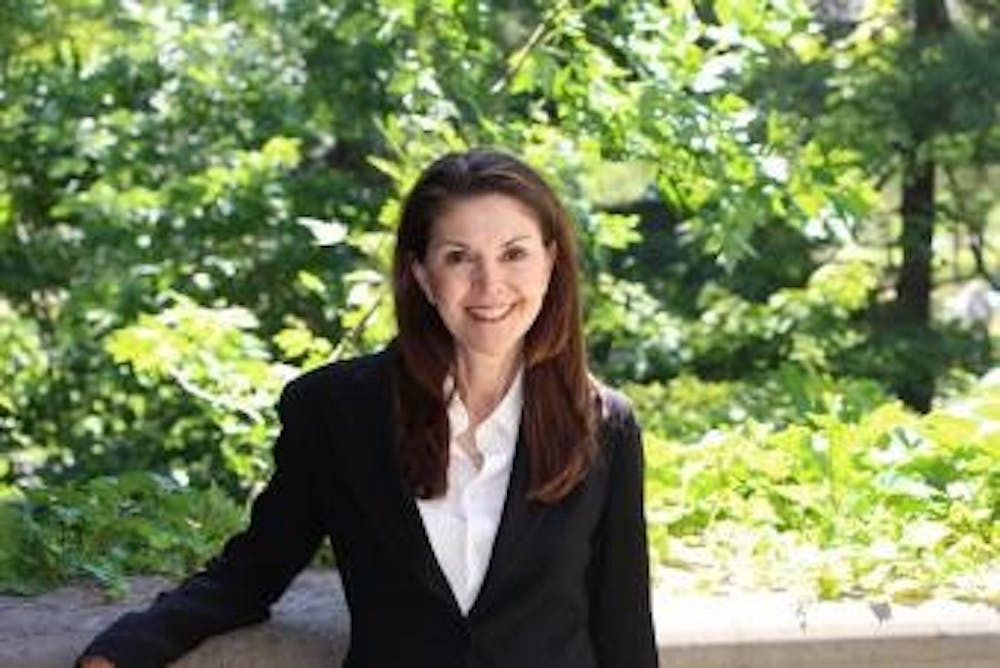For Sandra Bermann, migration is a truly global phenomenon. Migration, she says, is the human face of globalization.
Beginning in the 2018–19 academic year, Cotsen Professor in the Humanities and professor of comparative literature Sandra Bermann will lead a Sawyer Seminar called Global Migration: The Humanities and Social Sciences in Dialogue with support from a $225,000 grant to the University from The Andrew W. Mellon Foundation. In the course, Bermann plans to bring in faculty from multiple disciplines, including history, sociology, comparative literature, and politics.
Established in 1994, Sawyer Seminars are designed to be “temporary research centers,” not credit-bearing courses.
Eugene Tobin, senior program officer at The Andrew W. Mellon Foundation, explained that migration is rarely studied through the lens of the humanities, like it will be in Bermann’s seminar. Instead, Tobin said that migration studies are often tackled through the lens of economics, sociology, or demography.
“The type of interdisciplinary conversation promised in [Global Migration] — in which the humanities as well as interpretive social sciences and natural sciences have essential roles in comparative research on the historical and cultural sources of contemporary issues — is at the heart of the Mellon Foundation’s Sawyer Seminar series,” Tobin noted.
Regarding global migration as an interdisciplinary field, Bermann noted that, to her, the question of migration is one that isn’t defined by any single discipline.
“[Migration] … cries out for insights from many disciplines,” she said. “So I see it as an issue that is really demanding an interdisciplinary or multidisciplinary [approach].”
Bermann’s preliminary plan is to invite lecturers and professors not only from multiple disciplines, but also from a variety of careers, ranging from academia to government, to her seminar. As such, much of the Mellon grant will be dedicated to bringing in lecturers from outside the University, according to Bermann.
A big question Bermann plans to tackle is how migration can be dealt with in a way that is more humane and understanding of unique situations and contexts.
“I don’t think that the humanities have an answer for this, and I don’t think the social sciences do,” Bermann said. “But I think by putting our efforts together … we might come up with some creative solutions for affecting our public discourse.”
In 1998, a similar Sawyer Seminar to Bermann’s was offered at the University. This seminar, called Migration and Citizenship in the Americas was led by Jeremy Adelman, Henry Charles Lea Professor of History, and Marta Tienda, Maurice P. During Professor in Demographic Studies. Adelman did not respond to request for comment by the time of this article's publication, while Tienda declined to comment due to travel.
Bermann noted that though migration has always existed and has been studied for many years, her seminar will be unique in its greater focus on the new kinds of questions that have arisen in situations of contemporary migration — particularly in Syria, Africa, Asia, India, and Latin America.

Bermann explained it is essential to put heads together to think about migration, especially because of the rising numbers of migrants and the changing tenor of nationalisms in this era of internationalism.
Moreover, she noted that there remain many interesting and pertinent questions about migration that have not been well researched of yet.
The answers to these unanswered questions — why people choose to migrate, why some societies are worried about migration while others are welcoming, how political, journalistic, artistic narratives affect these attitudes — are of consequence to the world stage, she said.
Hermann also emphasises the many questions around language and migration: what happens when migrants have to petition for asylum or simply navigate everyday life without knowing the language of their host culture, or what happens when children become everyday translators since they often learn the languages first. These, she said, will be tackled in the seminar, which Bermann hopes will be open to the public at times.
“Understanding the situation [of global migration] more broadly may help open the discourse [on migration] in the U.S.,” Bermann said, emphasizing her hope that her seminar will open a “broader frame of reference” for developing “many-pronged" solutions to today's questions surrounding migration.
Bermann hopes that the dialogue within the seminar will extend to the greater Princeton community. In prioritizing community outreach, she believes seminar participants will be able to gain invaluable knowledge from communities at Princeton and throughout New Jersey.
Though Bermann admits her seminar will often operate from a North American perspective, she explained that she plans on featuring lecturers from around the world and sources who study different regions.
“Migration is not going to end,” Bermann said. “It’s always been with us, and it will continue.”








